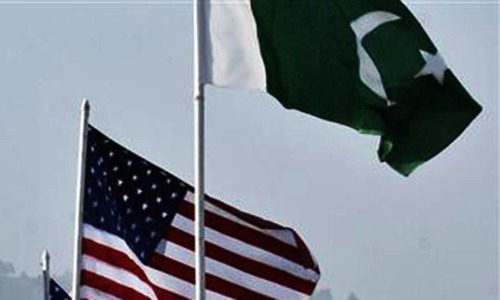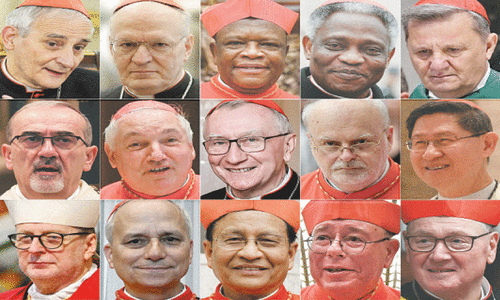Political impasse: US, Pakistan agree to disagree

WASHINGTON: The phrase “agree to disagree” best describes the outcome of four days of extensive engagements between the United States and Pakistan last week.
Prime Minister Nawaz Sharif arrived in Washington on last Tuesday for talks he hoped would revive a once strong relationship between the two allies.
But when he left for home on Friday, the two countries continued to differ on all the issues that divide them: Afghanistan, India and the nuclear threat in South Asia.
Some observers, however, opine that since all these issues concern security, the Americans will, hopefully, have more substantive talks when Army Chief General Raheel Sharif comes here next month.
The general perception in Washington is that Pakistan’s civilian government does not have much say in security matters.
In remarks made since Nawaz’s departure, US officials focused on the Haqqani Network, which they said, had once again become active in Afghanistan.
They also said that Pakistan could but was not doing enough to stop them.
The prime minister and his aides, however, insisted that they were doing all they could and that the militants were no more using their territory for carrying out attacks inside Afghanistan.
The Americans did acknowledge that Pakistan’s influence on the Taliban had weakened after Mullah Omar’s death but said that Islamabad could still do more.
In statements issued before and after the prime minister’s visit, the Pakistanis made it clear that they were more concerned about the situation on their eastern borders with India.
Nawaz also reminded Americans that there is room for a third party role to help India and Pakistan resolve their differences – particularly on Kashmir – as bilateral contacts were not working.
The Americans responded quickly, reminding the Pakistanis that their position on Kashmir has not changed. Washington views it as an issue that should be resolved in India and Pakistan talks.
They said that they would facilitate talks, but only if India also asked them to do so. India has already said it would not.
"It's clear that Pakistan's relationship with India is critical to Pakistan's future, and the normalisation of relations between the two countries is vital for both to them and to the stability in the region,” said White House Deputy Press Secretary Eric Schultz.
A joint statement issued after the Obama-Nawaz talks included both Lashkar-i-Taiba among the groups Pakistan needs to “take effective action against.”
On the nuclear issue, the Americans asked Pakistan to “limit its programme”, as it already had too many weapons, The New York Times reported.
Pakistan urged the United States also to focus on the conventional weapons-imbalance between India and Pakistan.
The prime minister underlined this point in his address to a US think-tank on Friday, warning that this imbalance was forcing Pakistan to improve its (nuclear) deterrence capability.
When asked to comment on the prime minister’s statement, a US State Department spokesperson, Mark Toner, said India and Pakistan “need to continue to discuss with each other their mutual concerns about security.”
The State Department also disagreed with the prime minister’s warning that India-Pakistan tension was the single greatest threat to the region’s security.
“It’s such a complex dynamic. You’ve got Afghanistan and the Taliban’s continued presence there on one side. You do have tensions with India, and all those need to be addressed,” Toner said.















































